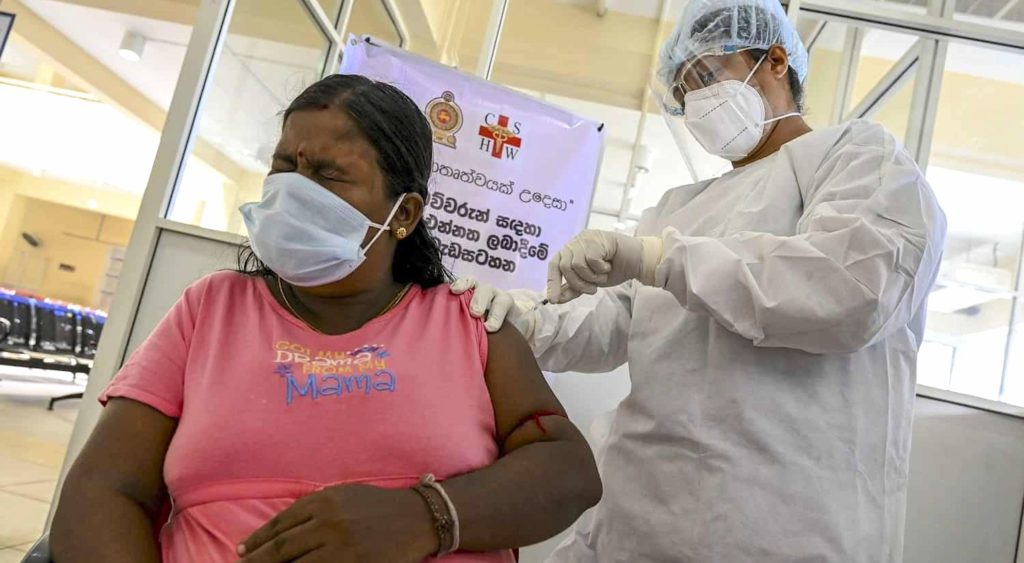Photo courtesy of The Citizen
In her latest work Darshi Thoradeniya, a senior lecturer at the University of Colombo, gives an insightful exploration of the history of women’s health in Sri Lanka, shedding light on lesser known facts and pivotal moments in healthcare policy evolution.
At the launch of A Critical History of Women’s Health in Modern Sri Lanka, a panel moderated by Dr Asha Abeyasekera a senior lecturer in Gender and Women’s Studies at the University of Colombo, with Prof Nira Wickramasinghe Professor of Modern South Asian Studies at Leiden University and Dr Susie Perera a public health expert providing a historical and medical perspective, discussed the issues brought out in the book.
The panel delved into the significance of monetary incentives for voluntary sterilization introduced in the late 1970s following India’s pioneering large scale cash payment programme in the late 1960s. By the end of 1981 the cash incentive was increased to Rs. 300. The discussion highlighted the convergence of terms such as “control” emphasising how language nuances shaped population control strategies. Thoradeniya asserts that the nuances of language should be understood by healthcare providers and then applied to policies. She believes that “If we don’t have the [right] language to talk about reproductive rights, then we have failed.”
The panel engaged with critical themes such as challenging Euro-American dominance in historical narratives, moving away from nationalist perspectives and adopting a more human-centric approach to storytelling. Thoradeniya writes, “It is time for us to imagine and rewrite a history of Sri Lanka that extracts the term ‘nationalism’. It is the only way that we can disentangle women’s bodies from nationalism and project our bodies as human bodies, nothing less, nothing more.”
Participants urged a shift towards a para colonial perspective, acknowledging the complexities of colonial legacies in shaping societal dynamics. Thoradeniya defines paracolonialism as a useful way to analyse the effects of colonialism while also displacing Eurocentric views of culture. Discussions also revolved around the need for a radical language in reproductive justice movements, transcending appropriated terminologies to address contemporary challenges effectively. Thoradeniya stressed that this would help to go beyond terminologies that have been appropriated by international organisations and have lost their meaning.
The book explored the intertwined issues of women’s powerlessness, institutionalisation and the need for radical restructuring of gender, social, and political structures. According to Dr Abeyasekera, one of the main conclusions of the book is that women’s prolonged beneficiary status caused them to institutionalise their powerlessness.
The author scrutinised the dominance of specific health indicators in masking women’s individual and collective experiences, emphasising the need for more responsive and person-centred healthcare services.
The panel dissected the historical landmarks in Sri Lanka’s healthcare journey from early family planning initiatives in 1879 to the contemporary focus on comprehensive reproductive health services and the decentralisation of healthcare access to grassroots levels. In 1965, the government accepted family planning and distribution of the combined pill with a focus on women as part of the family unit. In 1998, the population and reproductive health policy was introduced. However, Thoradeniya writes that this was problematic “because in an environment where human rights are routinely undermined […] it is unlikely, if not impossible, to even ‘imagine’ reproductive rights.”
Guest speakers provided multifaceted insights combining historical and medical perspectives to unravel the intricacies of women’s healthcare challenges and progress. Thoradeniya highlighted the importance of language in shaping rights and policy-making, urging a reevaluation of statistical representations to capture the full spectrum of women’s health experiences. In a modern context she asserted that language was not limited to words but could be an educational TikTok video or a social media post, as it is a communication method and a way of reaching people.
Discussions delved into issues surrounding abortion legalisation alongside readily available contraception, body autonomy, body politics, expanding the freedom of choice and the critical need to focus on morbidity and mortality rather than solely relying on statistics. Thoradeniya believes that women’s health statistics have become dominant in the medical field but they do not show the real health experiences of women. She stresses the importance of understanding the human stories behind the statistics and trying to figure out the issues relating to mortality and morbidity and to address those directly. In this way, women can be seen as individuals rather than as patients.
The book launch event had thought-provoking discussions encouraging a deeper understanding of the complexities surrounding women’s health. Thoradeniya’s work advocates for a more inclusive, equitable, and human-centric approach to healthcare policy and practice. The book aims to inspire readers to critically engage with historical narratives, challenge existing power dynamics and envision a future where women’s health is prioritised and respected.
The book is available to download: https://www.orientblackswan.com/opaccess
